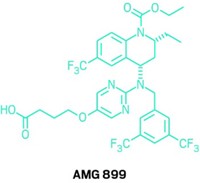Advertisement
Grab your lab coat. Let's get started
Welcome!
Welcome!
Create an account below to get 6 C&EN articles per month, receive newsletters and more - all free.
It seems this is your first time logging in online. Please enter the following information to continue.
As an ACS member you automatically get access to this site. All we need is few more details to create your reading experience.
Not you? Sign in with a different account.
Not you? Sign in with a different account.
ERROR 1
ERROR 1
ERROR 2
ERROR 2
ERROR 2
ERROR 2
ERROR 2
Password and Confirm password must match.
If you have an ACS member number, please enter it here so we can link this account to your membership. (optional)
ERROR 2
ACS values your privacy. By submitting your information, you are gaining access to C&EN and subscribing to our weekly newsletter. We use the information you provide to make your reading experience better, and we will never sell your data to third party members.
Pharmaceuticals
Alzheimer’s drug candidate trial data disclosed
BACE1 inhibitor verubecestat shows favorable side effect profile
by Stu Borman
November 7, 2016
| A version of this story appeared in
Volume 94, Issue 44
In an early Phase I study, an Alzheimer’s drug candidate showed reduced side effects compared with similar drugs that have failed clinical trials. The agents inhibit BACE1, an enzyme whose activity leads to β-amyloid peptide (Aβ) production. The idea is that inhibiting Aβ formation to reduce growth of Aβ-based plaques in the brains of Alzheimer’s patients may be therapeutic, although it isn’t yet clear how early in the disease process such an intervention would need to be employed to be effective. Several BACE1 inhibitors were withdrawn from trials because of off-target side effects such as liver toxicity. The BACE1 inhibitor verubecestat (MK-8931), currently being evaluated in two Phase III trials scheduled for completion in 2017 and 2019, seems to be more benign. Matthew E. Kennedy, Andrew W. Stamford, Eric M. Parker, Mark S. Forman, and coworkers at Merck report that in Phase I studies it showed relatively mild side effects, similar to those of placebos (Sci. Transl. Med. 2016, DOI: 10.1126/scitranslmed.aad9704). Four other BACE1 inhibitors are in clinical trials, but how their efficacy and safety compare with verubecestat’s isn’t yet clear. Riqiang Yan of Cleveland Clinic Foundation, a codiscoverer of BACE1, comments that verubecestat could offer hope to Alzheimer’s patients if its side-effect profile remains favorable when administered long-term.




Join the conversation
Contact the reporter
Submit a Letter to the Editor for publication
Engage with us on Twitter